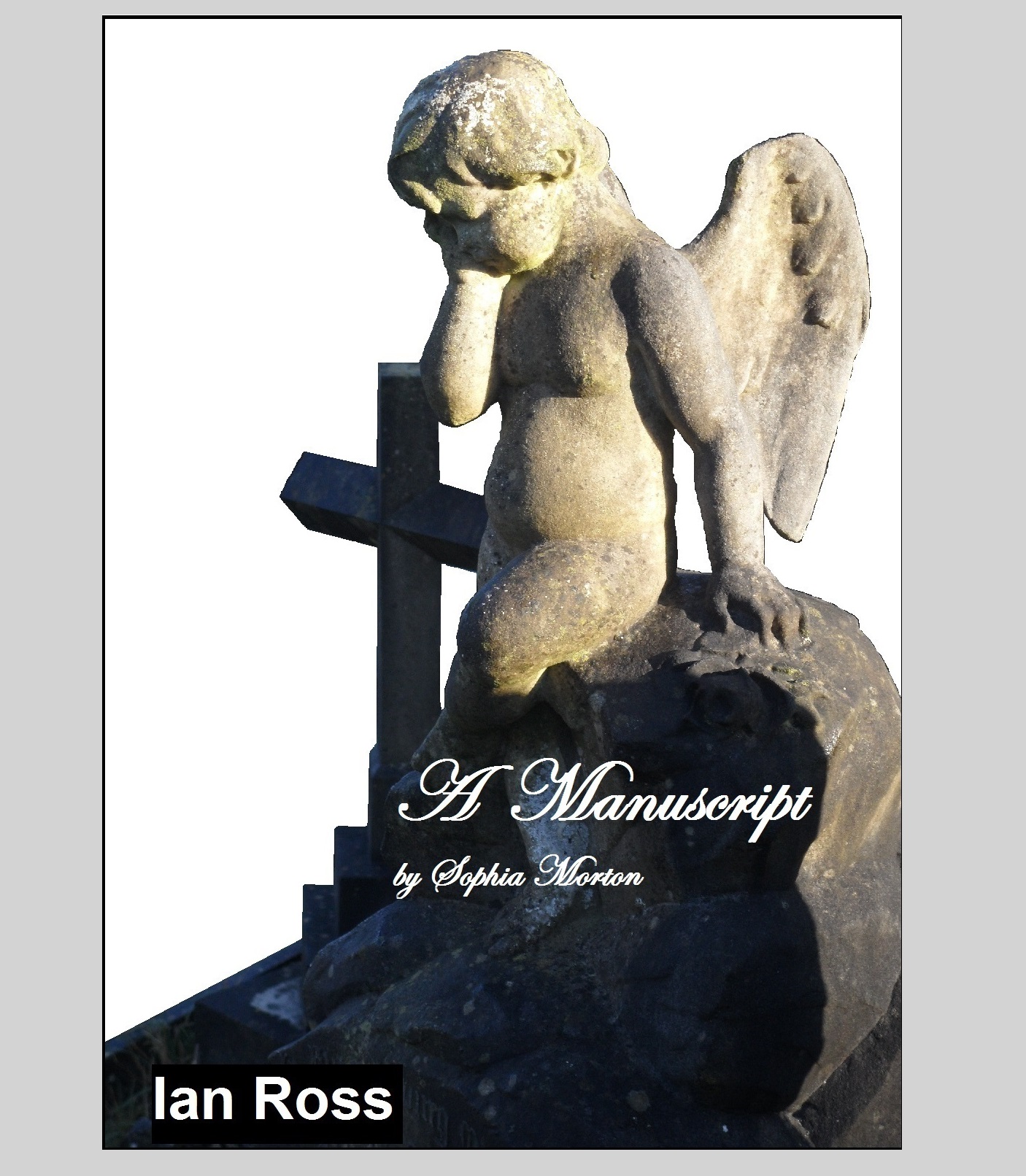Unnamed Manuscript by Sophia Morton, circa 1832.
Collaged by Corrine Celia
Full story available from Tilebury.
Editor's note: In a teak box bound by iron bands were a pile of handwritten pages. Some were notes, or fragments. Jottings, sketches and doodles. But the bulk were a reasoned and planned work of fiction. The story was peppered with crossings out and gaps. Some sections were duplicated as if the authoress had not yet decided which option to choose. In some places the ink or pencil had faded to illegibility. Elsewhere the acids in the wood of the box had eaten away parts of the text. Overall the work was incomplete. Less than half the length of a finished novel.
Nonetheless, where was enough to recognise the shape in which the final product would have been presented. And enough to know that it was written by a young lady of good education and imagination, perhaps inspired by her reading of the leading authoresses of her day. As the pages date from the 1820s those would certainly have included Jane Austen, Ann Radcliffe, Maria Edgeworth and Mary Shelley. They may also have extended to Mary Wollstonecraft.
Sophia's manuscript tells the story of three independent minded women living in Tilebury at the end of the eighteenth century. Their activities attracted suspicion from the villagers, especially when strange events began to occur.
Here is what exists.
Extract - first section. Please contact Tilebury for full novel
Untitled Manuscript
By Sophia Maria Angelina Morton, only daughter of the eighth Earl of Chennan.
A debutante who bows to the inclinations which occur to her, or who steps forward in frequent enterprises without adequate reflection and reference to her family's experience and interest, or who seeks to impress a gentleman of suitable means to whom her mother has introduced her with an interpretation of national events or an informed display of wit shall certainly regret the departure of the last carriage of the season and the prospect of minding her father's hearth until the first of her second year is summoned. A young woman, however, who entirely disdains advice and balls and fretting over gowns and ribbons, may so heat the minds of hostesses whose slippers have ever kept to marble halls and well swept and maintained paths, that she may succeed entirely in excusing herself from the need to attend to society at all, through lack of commands.
If after a few such free summers, she goes yet further, and with a mind set upon that which might be approximated its own independent course, a lady even of the finest birth may find herself wearing sturdy boots in hallways, riding dresses at dinner or a cape and hat in place of bonnet. If her face is not entirely commodious and yet she is observed to make no effort to disguise this defect, and if she become adept at country pursuits or be seen out more than is genteel after dark, as the summers pass into autumn she may eventually earn a duly deserved accolade for her efforts. Her new title amongst the superstitious all day and the gentry in private, may be that of: Witch.
Angelina was a woman with strong arms, eyes in which her constant energy could readily be felt and a nose which was neither too shy nor too wide. To soften her features she drew her straight hair back as tight as it could be constrained and took care neither to rouge her cheeks nor whiten her teeth. She had been given the gift of a tall frame which allowed her to converse, when she chose to, at a level equivalent to the most upright officers of his majesty's guard and moved more lightly and quickly than many ladies who, perhaps more expertly, concealed a girth similar to hers behind petticoats and frames which she was impatient to wear.
No man could deny that Angelina was a lady, as her entry to that effect stood out of Debrett's genealogies as clearly as she herself stood out from the ranks of countesses and duchesses. Nor was she denied the right her status entailed to decline a series of suitors who persevered in casting their clear gaze over her father's lands until she was well past those years when others had been permitted to focus upon good works, solitary pastimes and assisting younger acquaintances to pursue the opportunities which they themselves had not seen worthwhile to take.
Continued...

